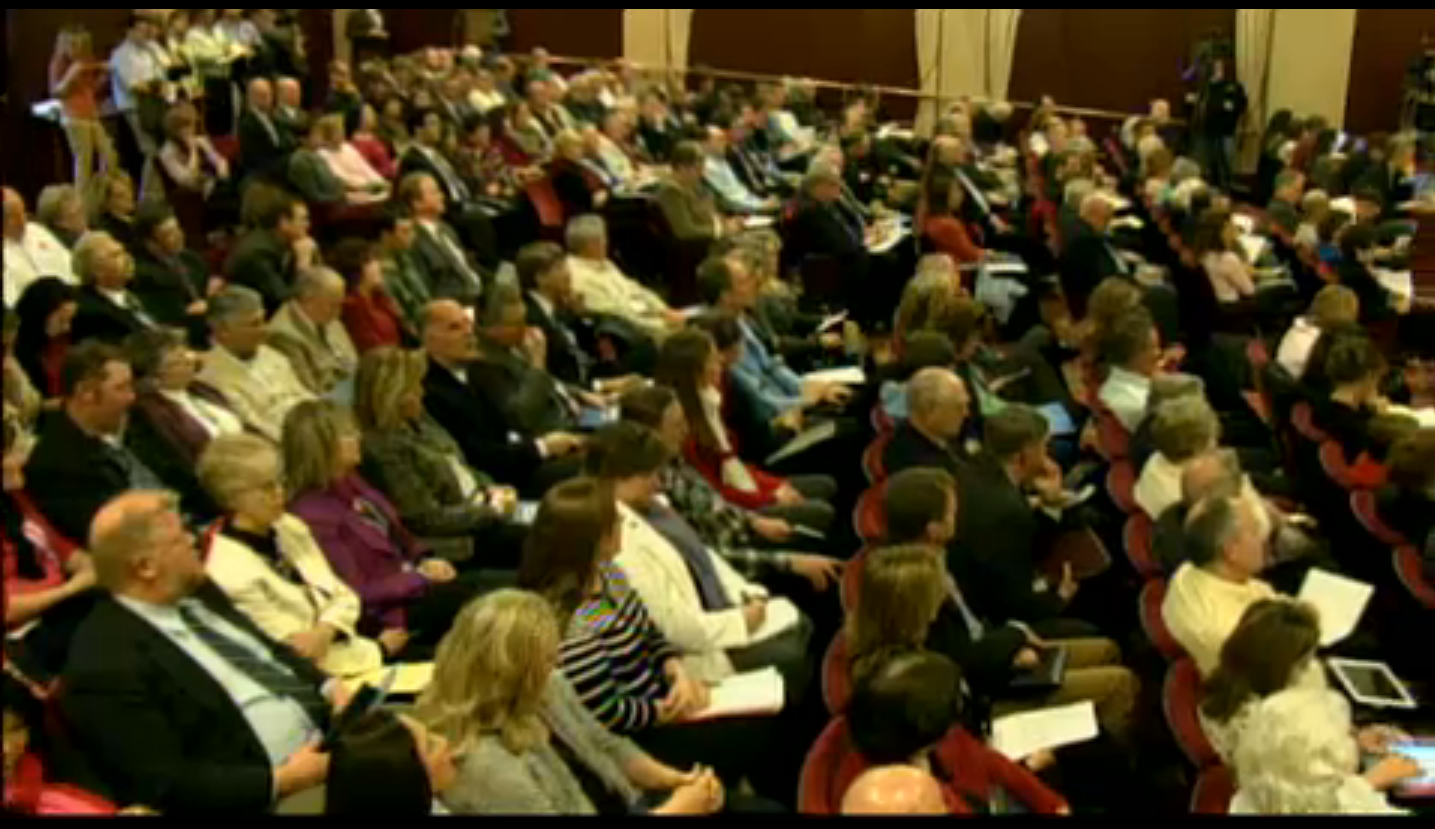School board members and district superintendents from across Idaho dominated the discussion during Monday’s education listening session hearings at the Capitol.
During the two-hour meeting, 37 people were called upon to testify – representing just a sliver of the crowd that packed the Statehouse.
At least 149 people signed in at the hearing, while more than 200 people grabbed seats in the Senate Auditorium, forcing overflow crowds to spill into two other committee rooms.
 The back and forth among supporters and opponents of the Idaho School Boards Association’s seven labor bills was a major theme.
The back and forth among supporters and opponents of the Idaho School Boards Association’s seven labor bills was a major theme.
Critics have called for standing down from pursing provisions of the Students Come First laws overturned by voters. ISBA president Anne Ritter said lawmakers needed to consider elements of the repealed law on their own merits, spread among several bills. She also pointed out Gov. Butch Otter’s education task force announced early on it would not weigh in on labor issues.
“There was no venue to have a full hearing on labor issue except in this forum,” Ritter said. “There was no reason to wait.”
Robin Nettinga, executive director of the Idaho Education Association, pushed back, saying there is no consensus on the issues and the lack of agreement taints the process.
“If we’ve learned anything since November’s election … it is without public buyin, change will not be embraced and the entire process here at this body and in the task force risks failure,” Nettinga said.
Many other issues, including school funding, school choice, personal property tax policy and class sizes also bubbled up.
Scott Rogers, superintendent of Minidoka County School District 331, said budget cuts have created a “real-life financial crisis.” He asked for renewing flexibility in staffing money known as use-it-or-lose-it funding. He said budgets have been cut to the bone and he is left with few options to keep his district vital.
“I’m no farmer but this much I do know: if you starve a pig it will die,” Rogers said.
The fact that so many school board members showed up to testify was not a surprise, given the hearing was scheduled when hundreds of school trustees were in town participating in the ISBA’s “Day on the Hill” activities.
Here’s a sampling from other speakers, and the issues they chose to bring to lawmakers’ attention during their allotted three minutes of testimony:
- Rep. JoAn Wood, R-Rigby, pushed for equality and sticking up for small rural school districts: “Our Constitution calls for free and equal education, and the elephant in the room is equal.”
- Spencer Larsen, superintendent of Butte County Joint School District 111, backed House Bill 65, which would return money to school districts this year that had been in limbo following the Students Come First repeal: “In Idaho, there needs to be more equitable funding for public schools. Many districts will be running supplemental levies this year, more so than in the past.”
- Brian Duncan, chairman of the Minidoka County School District 331 board, said the ISBA labor bills represent good management practices: “I’m tired of being told I’m not listening to voters. I spent a great deal of time talking to voters ahead of the election.”
- John McCrostie, a longtime educator and teachers’ union member opposed the ISBA bills: “It seems clear education reform via labor contract negotiations does not resound with Idaho voters.”
- Todd Wells, Castleford Joint School District trustee and president-elect of the ISBA, said the labor bills are “no blatant reintroduction of the Luna laws… Trustees need options such as the legislation before you to manage their districts in a financially prudent manner.”
- Chris Stokes called the labor bills divisive: “The ISBA has now, again, set the theme of us against them for management versus workers.”
